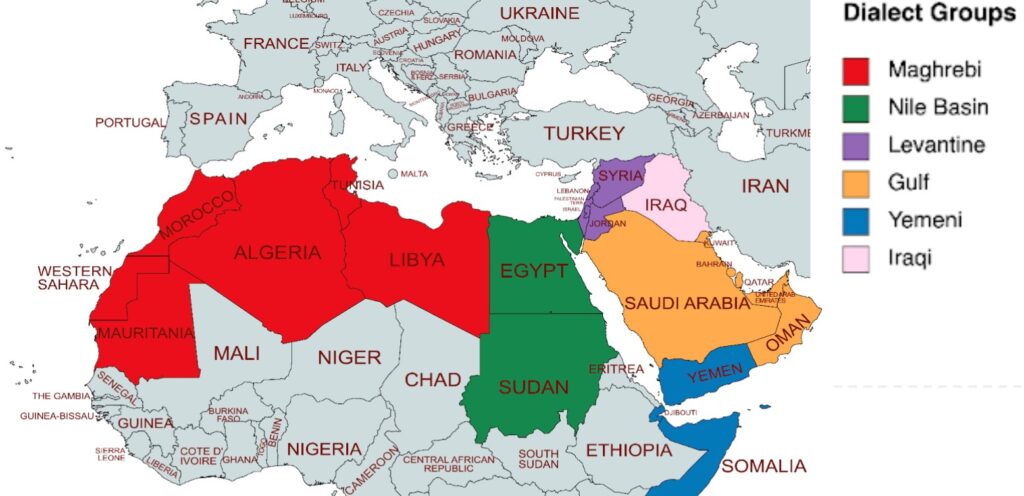
Egypt’s Bold Leap into Arabic AI: The Birth of an Arabic ChatGPT
Artificial intelligence continues to make waves across the globe, and Egypt is stepping onto the stage with a significant announcement: the development of an Arabic version of the ChatGPT model. This ambitious venture, backed by an investment of approximately $4 million, aims to broaden the accessibility and functionality of AI in a region where effective communication often faces linguistic barriers.
 Egypt’s evolving tech landscape embraces new AI technologies.
Egypt’s evolving tech landscape embraces new AI technologies.
WideBot, an Egyptian company known for revolutionizing chatbot and AI solutions, is at the forefront of this initiative. The CEO of WideBot, Mohamed Nabil, revealed their groundbreaking plans, stating that they aspire to create a model that not only mirrors the capabilities of ChatGPT but successfully incorporates the various dialects of Arabic. This development is particularly crucial as many of the existing AI platforms overlook the rich tapestry of Arabic dialects.
Aiming for Comprehensive Communication
Nabil emphasized the necessity for such a model, noting that the shortcomings of current AI technologies in relaying messages in Arabic can lead to miscommunication, especially in key sectors like banking, healthcare, government, and communication. As Nabil expertly pointed out, “We’ve surpassed all existing Arabic LLMs, pushing the boundaries of what’s possible in general Arabic AI. Our lab’s commitment to excellence is significant, and we’re excited about its potential to transform how businesses in the MENA region engage with AI.”
Here lies the promise of this new LLM: it strives not only for linguistic comprehension but also for cultural recognition. It aims to navigate the multitude of dialects, from Egyptian to Saudi and Emirati, reflecting the unique characteristics embedded within each demographic. The notion that a machine can understand the nuances of informal or regional speech is revolutionary and would be a boon for customer service interfaces, virtual assistants, and educational platforms.
 The rich tapestry of Arabic dialects signifies a powerful linguistic heritage.
The rich tapestry of Arabic dialects signifies a powerful linguistic heritage.
The Funding Challenge
Despite the optimism surrounding this project, the fact remains that wide-scale AI development requires extensive funding. Nabil also indicated that to propel this initiative into new regional markets, securing an additional $4 million in funding before the end of 2024 is crucial. Such a sum may appear daunting, but the potential return in terms of enhanced AI capabilities tailored for the Arabic-speaking world could yield enormous dividends.
In my personal view, the Egyptian bid to cultivate a more effective Arabic-language model represents not just an economic opportunity but also a cultural testament. The narrative surrounding AI has predominantly been dominated by Western-centric models, leaving multilingual regions wanting. By taking this leap, Egypt does not merely keep pace with technological advancements; it positions itself as a leader in the evolving AI landscape.
Overcoming Linguistic Limits
One cannot overlook the daily frustrations of individuals who navigate the complexities of using AI tools that fail to recognize regional dialects. Imagine an Egyptian customer service representative attempting to communicate with clients while their AI assistant misunderstands the language norms or colloquialisms—a significant barrier to effective service. In many ways, this new project by WideBot could profoundly transform customer interaction, enhancing user experience significantly.
From earlier in my career, I recall a time when I was part of a project that tested various AI models in translation. The ineptness of some tools to grasp context left us disillusioned. This firsthand experience significantly underscores the necessity of a model that doesn’t just translate language but enables conversations.
 Imagining a future where AI connects rather than confounds.
Imagining a future where AI connects rather than confounds.
Implications for the Future
As the initiative matures, the impact of a successful Arabic model goes beyond corporate stakeholders; it has the potential to influence education, public policy, and even local content creation. The ability of AI to engage with citizens in a language that resonates with their everyday lives could encourage participation in governance and social issues, thereby fostering a more informed society.
In conclusion, Egypt’s venture into developing an Arabic version of ChatGPT isn’t merely an effort to replicate a successful Western model; it represents a monumental shift toward inclusivity within technology. Should this project succeed, it will not just serve businesses but will resonate through the very fabric of Arabic-speaking communities. The authentic voice of the region could finally find a reflection in the AI that governs it.
With strong support and visionary leadership, we can only anticipate how this endeavor will unfold in the coming months. The landscape of AI in the MENA region is on the verge of transformation, and I, for one, am eager to see how WideBot’s journey evolves.
Tags:
AI, Arabic AI, ChatGPT, Egypt, Technology, WideBot















